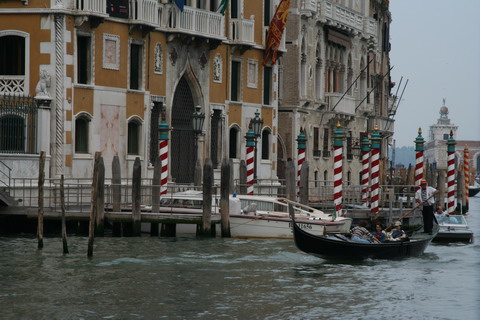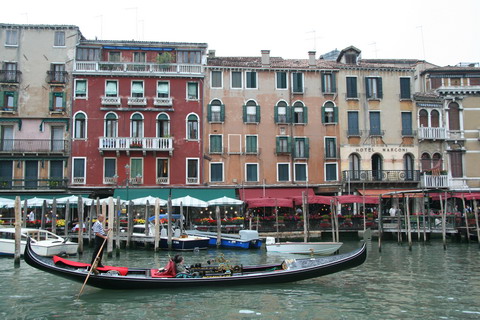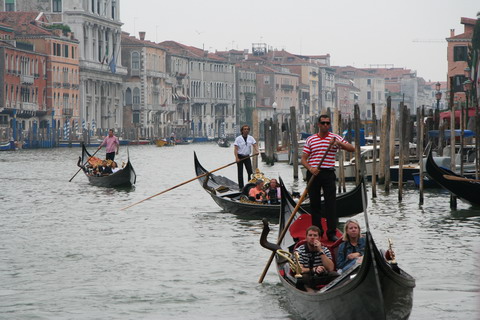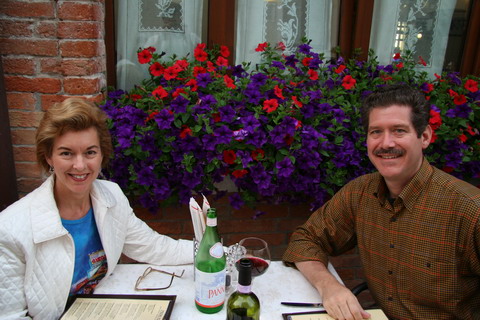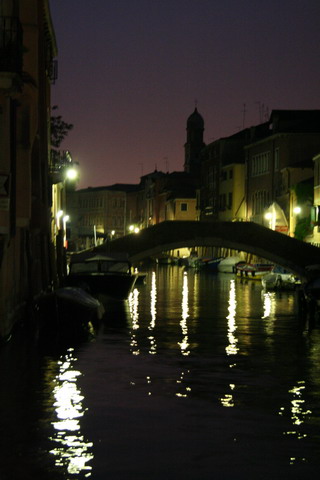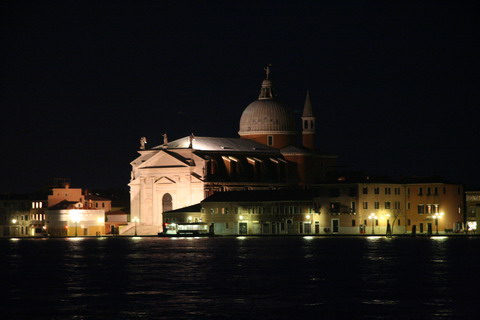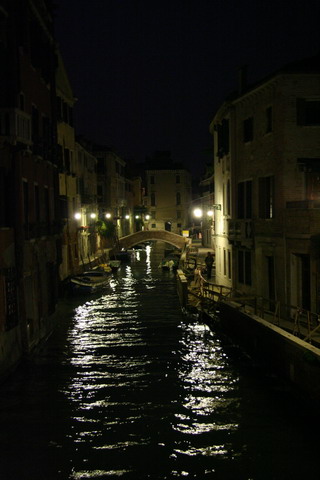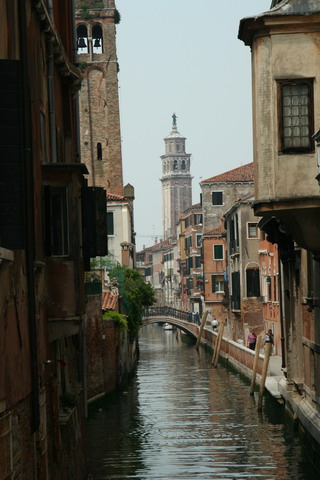
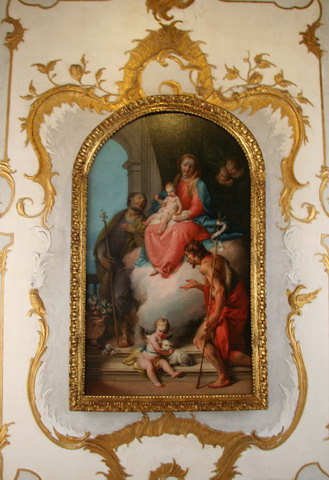
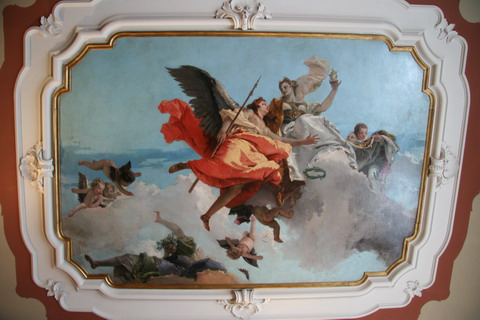
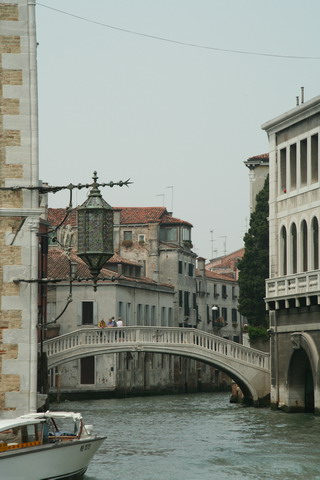
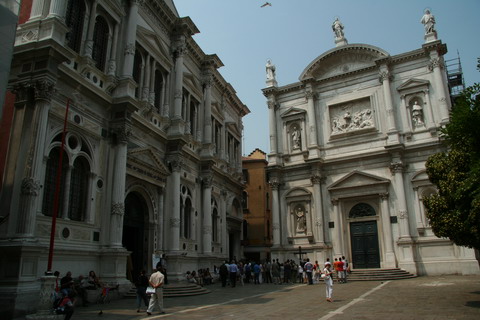
On the right is the Church of San Rocco which was begun in 1489 and consecrated in 1508. Facade was built from 1765 to 1771 and appears in keeping with the Renaissance architecture of the adjoining Scuola Grande. Almost all the statues on the facade are by sculptor G. Marchiori.
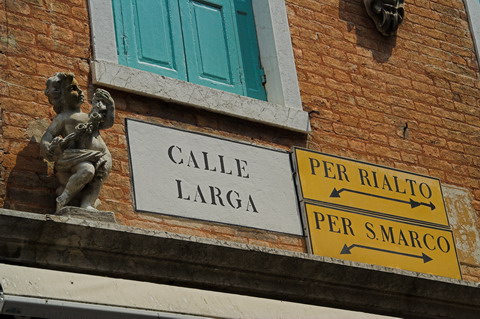
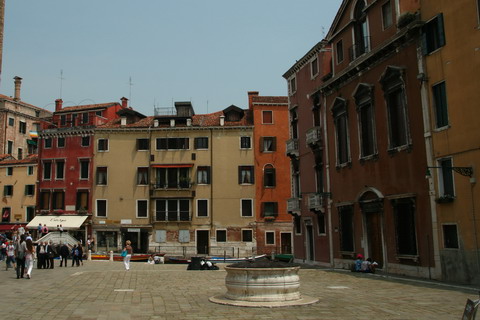
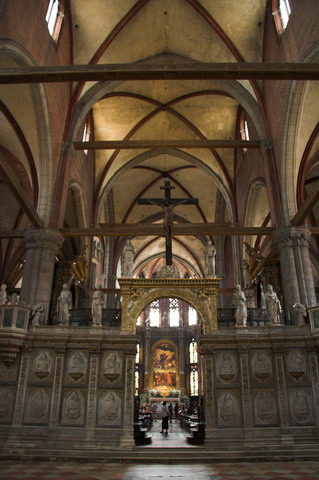
Interior has three naves with a Latin cross plan and keeps important masterpieces of Venetian art.
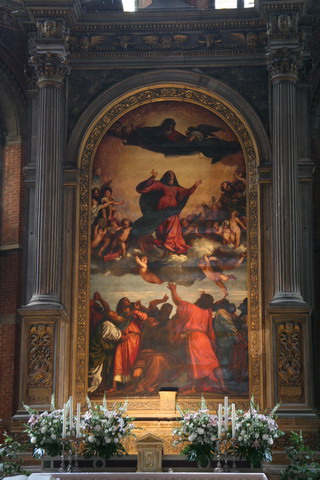
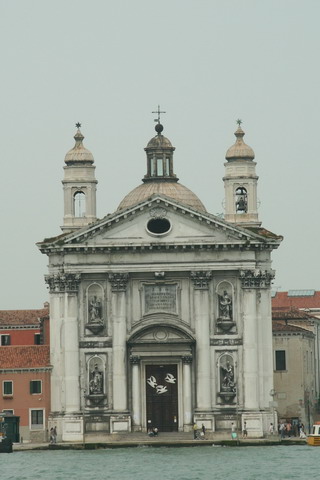
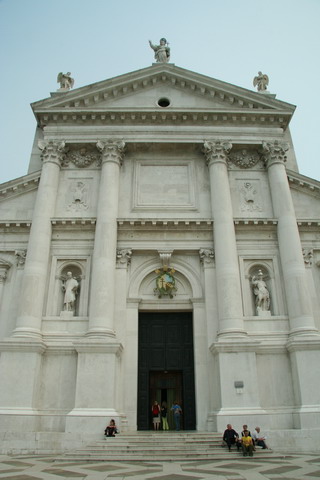
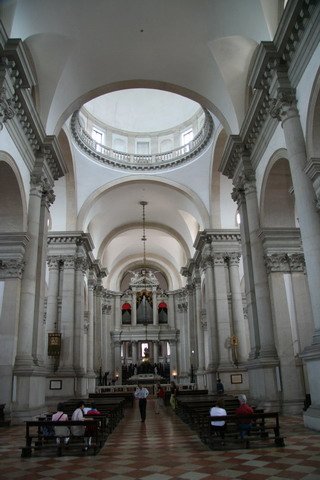
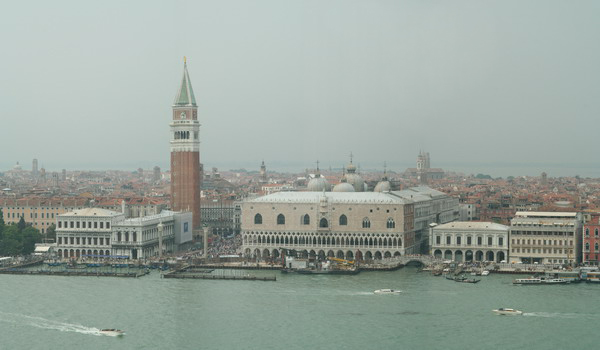
Our next stop will be the bell tower in St Mark's looking back this way.
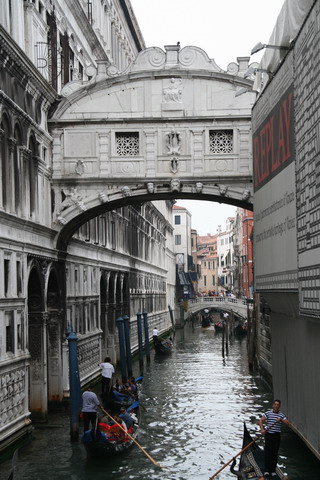
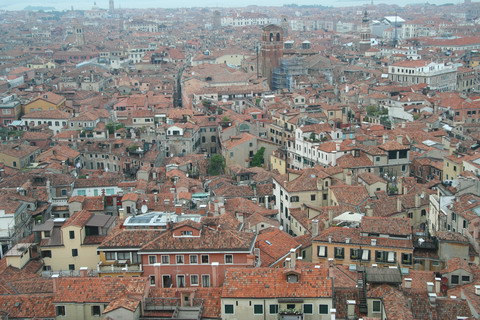
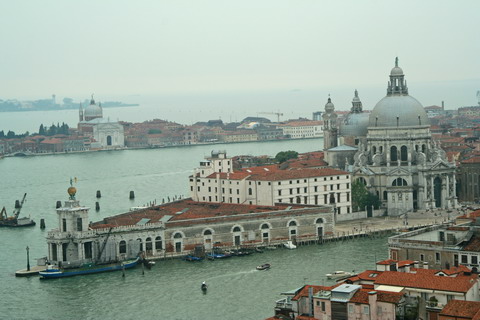
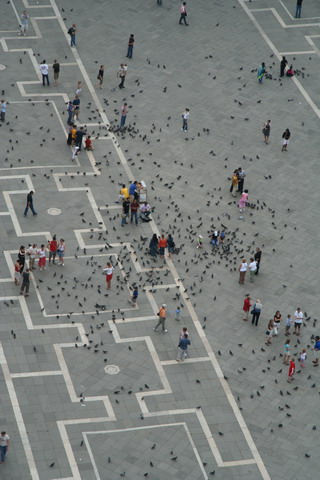
In 1723 the bricks were replaced with a more complex geometrical pavement design composed of a field of dark-colored igneous trachyte with geometrical designs executed in white Istrian stone, similar to travertine.
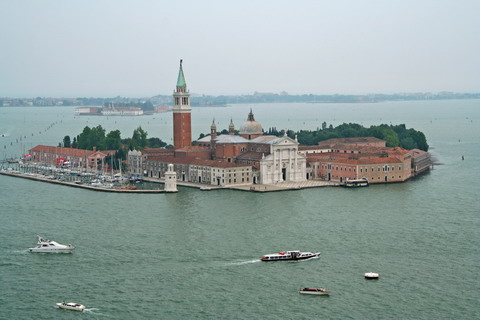
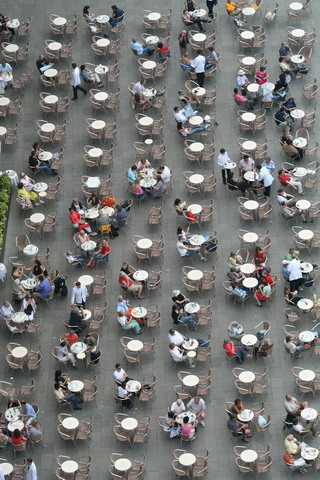
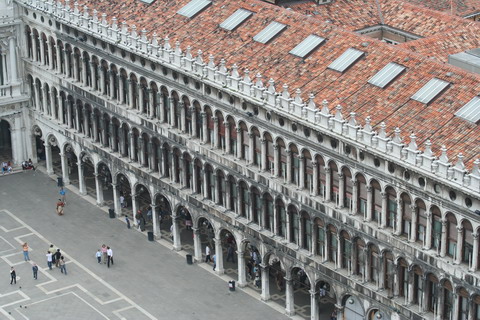
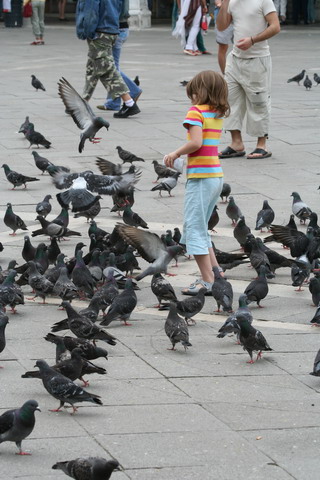
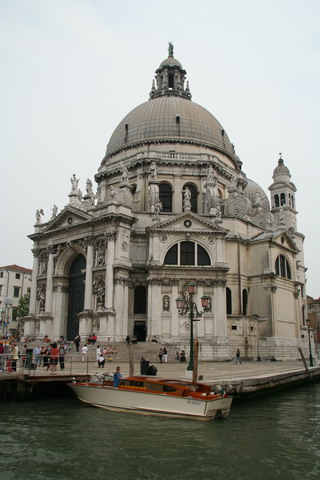
In 1630-31 Venice was devastated by a plague that exterminated 95.000 of the lagoon's population. In October 1630 the Senate decreed that a new church would be dedicated to Mary if the city were saved and the result was the Salute church (salute="salvation, health").
The Madona della Salute is built on a platform of more than 100.000 wooden piles and the church took half a century to build.
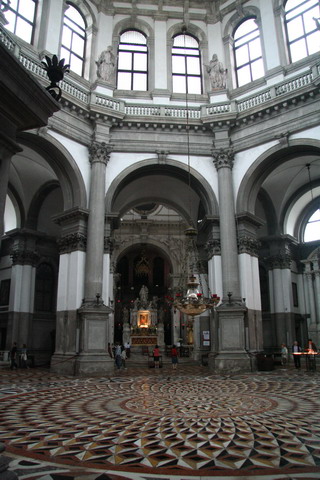
From that 21 November the Madonna was known as the Madonna della Salute (Our Lady of Good Health). Since then the votive visit to the church is held annually on this date.

This was in a series of shots from the water bus to the train station.
